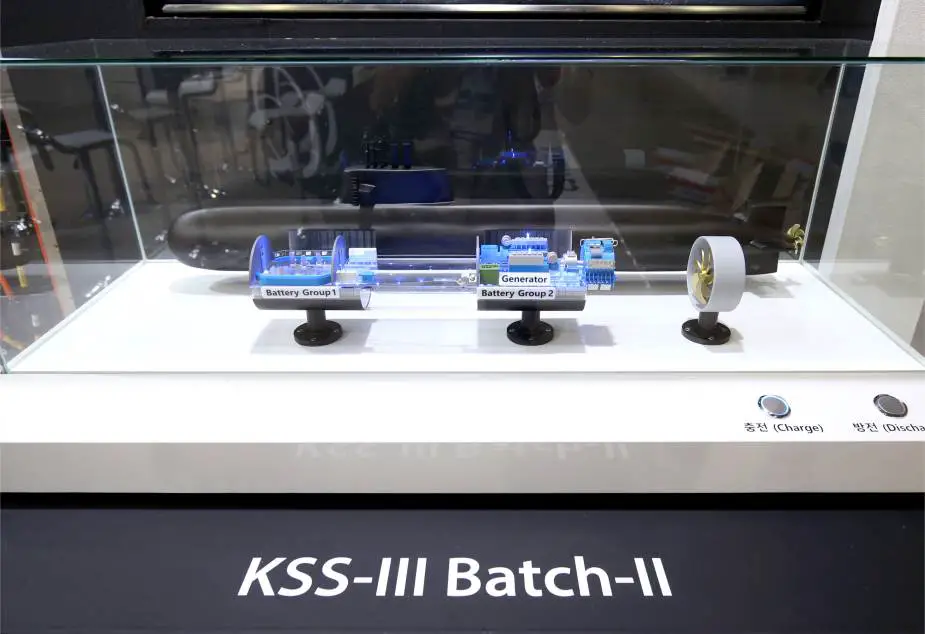Breaking news
MADEX 2021: Hanwha Defense presents its new technology of lithium-ion battery for submarines.
At MADEX 2021, International Maritime Defense Industry Exhibition, South Korean company Hanwha Defense presents its new technology lithium-ion battery that will be used on the new 3,000-ton class attack submarine code-named KSS-III Batch-2 to enter service by 2026.
Follow Navy Recognition on Google News at this link
 Hanwha defense displays new technology of lithium-ion battery for South Korean Navy KSS-III Batch II submarine. (Picture source Hanwha Defense)
Hanwha defense displays new technology of lithium-ion battery for South Korean Navy KSS-III Batch II submarine. (Picture source Hanwha Defense)
The KSS-III (Jangbogo-III) class, also known as Dosan Ahn Chang-ho class, is a series of next-generation diesel-electric attack submarines for the South Korean Navy. She will be powered by a diesel-electric, fuel-cell air-independent propulsion system to reach a surfaced speed of 12 knots (22 km/h) and 20 knots (37 km/h) n submerged conditions with a range of 10,000 nautical miles (19,000 km/h). Compared with the lead-acid batteries used before, the new lithium batteries enable KSS-III batch II submarine to cruise at high speed, increase its ability by 300% and economic endurance by 160%. And the durability and life expectancy are doubled more.
Hanwha Defense is responsible for integrating the battery modules and other parts on the next-generation 3,000-ton submarine, as the lithium-ion battery is expected to help increase the underwater operational hours of the submarine twice as much as those with lead-acid batteries.
Notably, the Hanwha-built lithium-ion battery has been designed with a top priority on safety and reliability since the battery power stacks have undergone operational demonstrations for the first time in the world, even in various extreme conditions.
The submarine-based battery technology has successfully been expanding into a commercial sector to develop an energy storage system, or ESS, for an eco-friendly propulsion system for offshore ships.
In January, Hanwha Defense signed a strategic memorandum of understanding (MOU) with Danfoss Korea to expand business cooperation to develop eco-friendly electric propulsion systems. Under the agreement, both firms will jointly develop electric propulsion systems through a technology partnership.


























